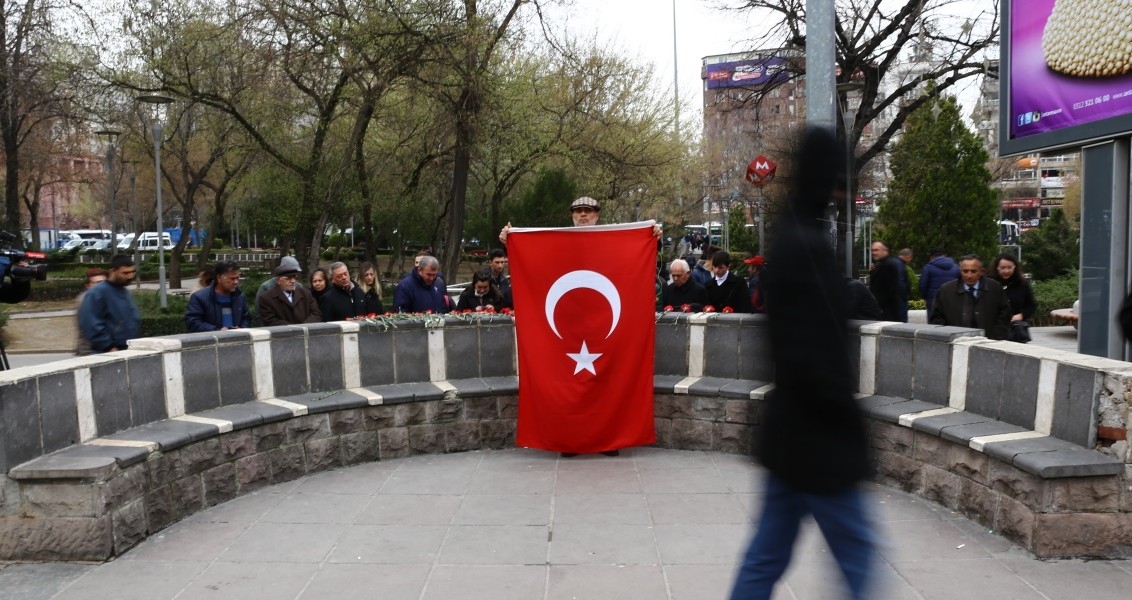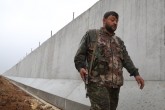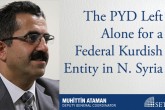Terrorists struck Turkey twice in a week. First, a PKK member blew herself up in the heart of Ankara and, six days later, a DAESH militant perpetrated a similar attack in Istanbul and killed multiple civilians. The assailants were members of different terrorist organizations, but shared a commitment to spread fear and dishearten the people in Turkey. By sending suicide bombers to popular spots in Turkey’s largest cities, the PKK and DAESH strengthened an ever-popular sense that they were exactly the same.
In recent months, it has been interesting to see opposition pundits who were initially critical of President Recep Tayyip Erdoğan’s assessment that the two groups were one and the same slowly reach the same conclusion. Less than a year after the PKK’s return to violence, the vast majority of Turks has come to believe that the organization’s tactics are no less violent than those of DAESH.
The PKK’s leftist-secularist roots no longer prevent the Turkish people from drawing parallels between it and DAESH. In addition to targeting civilians, two factors strengthen the association. First, PKK leaders believe that they are more powerful than ever and could bring the Turkish people to their knees, which is met with a strong response from the public. Moreover, the people believe the PKK, whose Syrian franchise is in the process of forming an entity in northern Syria, is willing to do anything to keep the area under its control.
It is important to recall that the Democratic Union Party (PYD) rose to prominence after DAESH entered the civil war in Syria, and quickly secured the support of both the United States and Russia. Presenting itself as a secular force against religious fanatics, PYD militants tapped into the West’s fear of DAESH’s boundless violence to seize more territory and recruit new members.
In July 2015, the PKK, many of whose members had been fighting among YPG ranks in Syria during the disarmament talks in Turkey, adopted a new strategy based on urban warfare. The new game plan not alienated the Kurdish community and made town centers war zones, strengthening Turkish people’s association between the PKK and DAESH.
Having long presented itself as an armed group fighting for Kurdish freedom, the PKK and, by extension Kurdish nationalists, have reached a critical point. Especially since the PKK started targeting civilians again, Kurdish nationalist have become the object of people’s hate. Although many Turks experienced similar emotions in the 1990s, the current escalation is much more dangerous. The PKK’s threats against Turkey’s territorial integrity, which their leaders no longer feel compelled to hide, fuels tensions across the country.
Although the Turkish people are outraged by DAESH supporters, the fact that the PKK has a much broader base makes anger toward Kurdish nationalists a bigger problem.
Instead of de-escalating the situation, PKK leaders have been knowingly pouring fuel on the fire. Most recently, Murat Karayılan, a member of the Kurdish Communities Union’s (KCK) executive board, issued a direct threat against Turkey: “2016 won’t be a regular year. If [the authorities] insist on hostilities against Kurds, Kurds will secede. Until Nevruz, the Kurds’ motto will be unity. If [the authorities] fail to appreciate the value of [unity], Turkey will no doubt be divided into pieces.”
At this point, it is no longer possible to hide the PKK’s separatist agenda behind the smokescreen of opposition to President Recep Tayyip Erdoğan or the Justice and Development Party (AK Party). Quite the contrary, additional steps by the PKK leadership will fuel a reactionary brand of nationalism. People’s anger toward terrorists could lead to extreme reactions.
The PKK leadership must face the fact that the Kurdish community has no interest in secession. The Turkish people, in turn, are equally committed to the idea of living in an ethnically diverse society and have what it takes to handle whatever the PKK is willing to throw at them.
This article was written before the terrorists claimed new victims in Brussels. We do not know who was responsible for the attacks. Nor does it matter. The important thing is to take stand against terrorists no matter what they call themselves.
[Daily Sabah, March 23, 2016]
In this article
- Opinion
- Security
- 1990
- 2015
- 2016
- Civil War
- DAESH
- Daily Sabah
- Democratic Union Party (PYD)
- Kurdish Community
- Kurdish Nationalism
- Kurdistan Workers' Party Terrorist Organization (PKK)
- Middle East
- Opposition
- People's Protection Units (YPG)
- PKK - YPG - SDF - PYD - YPJ - SDG - HBDH - HPG - KCK - PJAK - TAK - YBŞ
- Recep Tayyip Erdoğan
- Russia
- Syria
- Syrian Civil War
- Syrian Conflict
- Syrian Crisis
- Terror
- The President of the Republic of Türkiye
- Turkish President
- Türkiye's Justice and Development Party | AK Party (AK Parti)



